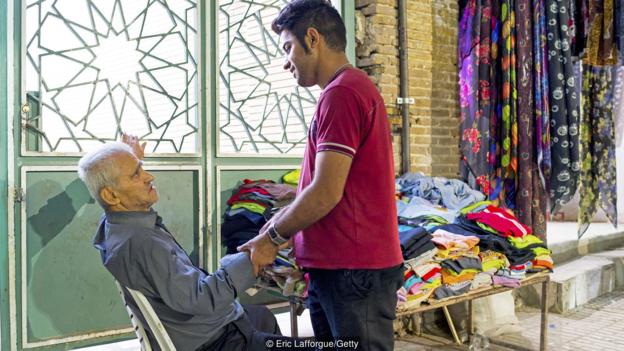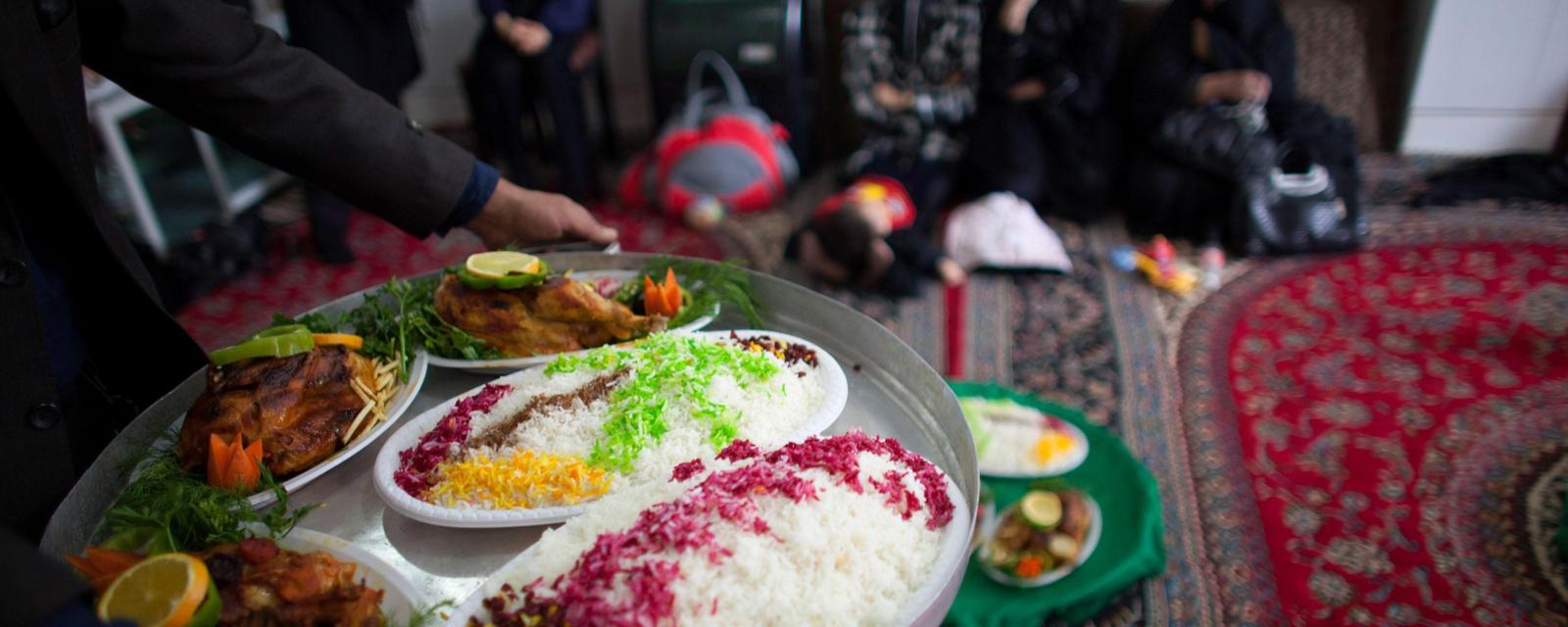In every social interaction, from buying groceries to negotiating a nuclear deal, this highly valued behaviour dictates how people should treat each other.
“Befarmaeed,†said Fatimeh with an imperative hand gesture that commanded me to eat more.
As I joined my impeccable Iranian hostess, her mother, two daughters and son for dinner, served on the floor over a perfectly imperfect Persian carpet, I felt ready to put my basic taarof skills into practice for the first time. I desperately wanted some more of the mouth-watering sabzi polo mahi (a herbed rice dish served with fish) but, before saying yes, I knew I had to convincingly say a few noes.

I had never heard of taarof until I travelled in Iran. This Persian word with Arabic roots defines the country’s complex art of etiquette, in which the true meaning of what is said is not in the words, but somewhere beyond them. It’s a subtle dance of communication, where participants step back and forth over and over, never taking over the stage.
In the world of taarof, politeness holds the place of honour. In its name, people refuse when they want to accept, say what is not meant, express what is not felt, invite when it is not intended, replace bad news with false hope. By doing so, they try to say what they “wished it were†– without ever admitting that it isn’t.
Once I paid a Tehran taxi driver 250,000 rials for the ride, a fare we had previously agreed on after a hard-fought negotiation. Oddly, the money was refused.
“Ghabel nadare,†he said smiling, indicating that he wouldn’t accept it.
Scratching my head, I insisted. Again he protested. Giving up, I thanked him in Farsi and left the vehicle with a grin on my face. “All is well,†I thought, incredulously.
“He was taarofing,†my friend Reza later explained. “Of course he expected you to pay. And you should have insisted more. The driver was showing his respect for you. There is an unwritten rule of two or three rounds of offering and refusing in taarof. Once this ritual is performed, you can say what you want without being [considered] rude. Politeness first, but in the end you always pay.â€
I thought hard about that later, wondering if the driver was still smiling.
Although decorous manners are practised throughout the world, taarof differs by being far more elaborate and pervasive.
In every social interaction, from buying groceries to negotiating a nuclear deal, this highly valued behaviour dictates how people should treat each other. While the concept is generally positive, showing mutual deference, it can be manipulative when used improperly, when someone tries to benefit from the generosity of another. Such behaviour is seen as negative in Iranian society, as it masks arrogance rather than expresses humility.
“One key concept in taarof is a function that I have described as ‘getting the lower hand’,†said William O Beeman, professor of anthropology at the University of Minnesota and a Middle East specialist. “Individuals will seek to raise the other person’s status, and lower their ownâ€.
Paradoxically, he explained, in a hierarchical society such as Iran, where favours and services can be interpreted according to the stratum of the provider, this behaviour “produces social stability, because when both persons are doing this, they achieve equalityâ€.
One thing that sets Iran apart from other Middle Eastern countries is its Persian identity, preserved in traditions, language and many rich art forms, including literature. Rumi, Ferdowsi, Hafez and Omar Khayyam are poets whose verses have been – and still are – savoured in both the East and West. Iranians are proud of their heritage; “Nowruz [Persian New Year] is our most important holiday – we still speak Persian [Farsi]. We are Persians in blood and soul, and this cannot be changed,†Reza said.
“Taarof represents the kind essence of Iranian people. In our culture, it can be impolite to express ourselves in very a direct and objective way,†explained Iranian artist Fereshteh Najafi. “For Iranians, kind words are always important. Maybe it is because our Persian spirit carries a lot of poetry in it. Our most important thinkers are poets, most of them very ancient, and a language full of kindness and praise is still today present in our readings.â€
Another Persian legacy is their hospitality. A guest in Iran is like a cherished precious jewel. People will likely put themselves out for you by sharing what they don’t have enough of and spending on what they cannot afford – and that’s taarof in its purest form.
A usual invitation for a cup of tea can be extended to stay the night. Asking for directions may result in a new friend who, instead of simply pointing, will take you there. As Iranians are genuinely courteous, the line that separates sincere invitations from polite gestures can be very thin.
“You can ask people not to taarof,†said Fatimeh, who, when we had only just met, tried to offer me her own bed, saying she would sleep on the floor. “It sometimes works, sometimes doesn’t – as the request itself may be a form of taarof.â€
The truth is that taarof is not meant to appear to be taarof. The less obvious it is, the more successful. When in doubt, the secret is to always consider the other, and put his or her needs first. It is a feeling that, in the end, simply figures itself out.
By Julihana Valle
Photo Courtesy Eric Lafforgue/Getty







